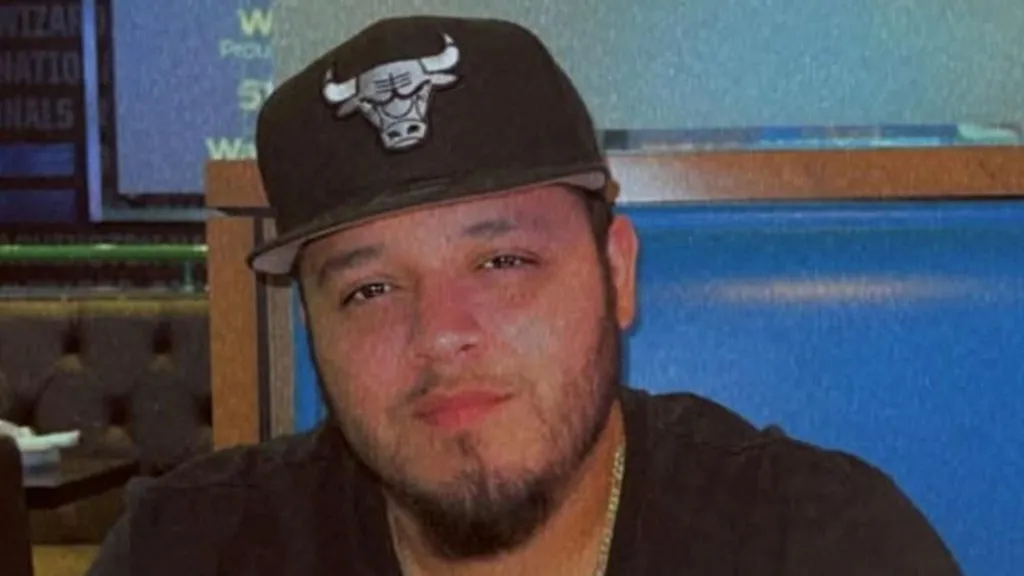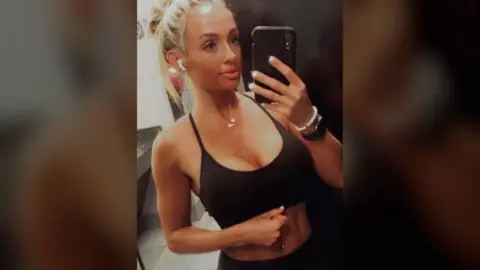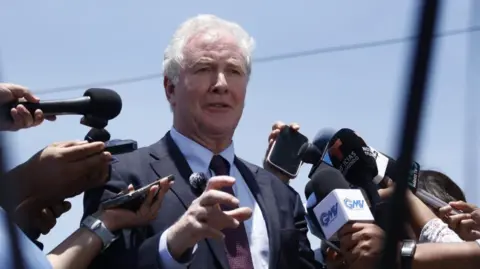
The White House has dug in on its refusal to return a man who US officials have acknowledged was wrongly deported last month from Maryland to an El Salvador mega-prison.
Press secretary Karoline Leavitt doubled down on accusations that Salvadoran national Kilmar Ábrego García was a member of the MS-13 gang, which his lawyer denies.
Leavitt also accused the 29-year-old of domestic violence, citing records showing his US citizen wife once filed a protective order against him.
A Maryland judge has ordered President Donald Trump's administration to bring Mr Ábrego García back to the US. But El Salvador President Nayib Bukele said on a visit to the White House this week that he did not "have the power" to return him.
It comes amid an escalating showdown between the president and the judiciary on immigration as a judge in another case said the administration could be held in contempt of court over deportation flights.
Leavitt told a press briefing on Wednesday: "If he [Mr Ábrego García] ever ends up back in the United States, he would immediately be deported again.
"He will never live in the United States of America."
She again accused Mr Ábrego García of being a member of the MS-13 gang, citing court findings. But his lawyer and family reject that he was ever in the gang.
The press secretary also called Mr Ábrego García a "woman beater", referring to a domestic violence claim.
The Department of Homeland Security released details of a 2021 restraining order filed by his wife, who alleged he punched and scratched her and ripped off her shirt.
Mr Ábrego García's wife, Jennifer Vasquez Sura, told Newsweek on Wednesday that she sought the order "out of caution". She said they were able to resolve the situation as a family, including by counselling.
 Reuters
ReutersThe BBC contacted Mr Ábrego García's lawyer, Benjamin Osorio, about the domestic violence allegation.
The attorney responded by email: "Is the government allowed to admittedly break the law if an individual is alleged to have broken the law?"
Mr Ábrego García was living in Maryland, before he was deported on 15 March with scores of Salvadorans and Venezuelans to the Center for the Confinement of Terrorism (Cecot) in El Salvador.
Maryland Judge Paula Xinis ruled that Mr Ábrego García's removal from the country breached a 2019 court order that had granted him legal protection from deportation.
The US Supreme Court last week partially upheld the lower court ruling, finding that the Trump administration must "facilitate" Mr Ábrego García's release.
Trump administration officials have conceded the deportation was an "administrative error", although the White House insists there was no mistake.
Judge Xinis has requested daily updates on what steps are being undertaken to bring him back to the US.
But in Wednesday's status report, acting general counsel at the Department of Homeland Security Joseph Mazzara told the court there were "no further updates".
The White House press secretary was joined at Wednesday's briefing by the mother of a Maryland woman who was murdered in August 2023 by an alleged illegal immigrant from El Salvador.
Patty Morin shared graphic details of her daughter Rachel Morin's death at the hands of Victor Martinez-Hernandez, who was found guilty on Monday.
"We are American citizens," said Patty Morin. "We need to protect our families, our borders, our children."
 Harford Co Sheriff's Office
Harford Co Sheriff's OfficeMeanwhile, Maryland Senator Chris Van Hollen, a Democrat, flew to El Salvador in an attempt to speak with Mr Ábrego García, but was denied access on Wednesday.
Van Hollen met the country's Vice-President Félix Ulloa, who told the US senator they could not accommodate a visit to the mega-prison.
In a press conference in the capital San Salvador, Van Hollen called on the Central American country to release "a man who's charged with no crime, convicted of no crime and who was illegally abducted from the United States".
The White House hit back in a press release that Van Hollen "didn't even bother to contact" the family of Rachel Morin after her death.
Van Hollen's rebuff came a day after another US member of Congress, West Virginia Republican Riley Moore, was allowed by Salvadoran authorities to enter the prison.
Moore posted a selfie in front of a crowded cell, saying the visit had made him even more determined to "support President Trump's efforts to secure our homeland".
 EPA
EPA